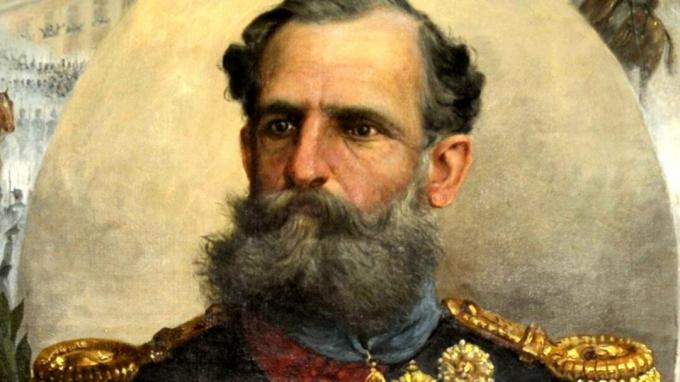
Since independence of Brazil, enacted on September 7, 1822, the country went through several phases of social and political unrest.
The factors that contributed to the emergence of turbulent periods were revolts, attempted coups d'état, resignations and execution of coups d'état.
see more
Scientists use technology to unlock secrets in ancient Egyptian art…
Councilor proposes the creation of 'Day of Batman' in…
throughout the history of Brazil to the present day, the country has experienced five resignations of heads of state.
Therefore, we gathered the main elements that led these leaders to abandon the command of the Brazilian State.

Dom Pedro I was the first head of state in the Brazil and the first to resign from office. He abdicated the throne in favor of his son, Pedro de Alcântara (Dom Pedro II), in April 1831.
Among the various factors that led him to take such an attitude are the growing opposition of the liberal wing to the emperor, economic difficulties and social revolts.

O Marshal Deodoro da Fonseca he was responsible for proclaim the republic from a coup d'état against the then emperor, Dom Pedro II.
Therefore, after the 15th of November, Deodoro became the president of Brazil until the elaboration of a new Constitution For the country.
The new constitutional text was approved in 1891. The promulgation of the document allowed Deodoro to become president of Brazil through the vote of Congress.
The then president was to serve a four-year term. The elected vice-president was also marshal, Floriano Peixoto.
The Deodoro da Fonseca government was characterized by tensions with Congress caused by political problems, such as the choice of Barão de Lucena to head the Ministry of Finance.
As a monarchist, Lucena represented an insult to republican parliamentarians who wanted to have political institutions represented by republican individuals.
In addition, the attitude of the Baron of Lucena displeased the congressmen, who considered him authoritarian in its relations and without ability to deal with the economic crisis that the country was experiencing that moment.
As a reaction, Congress decided to pass a bill that limited the powers of the president. Irritated with the measure adopted by Congress, Deodoro decided to promote a coup d'état in November 1891.
In order to combat the coup, the Brazilian Navy threatened to bomb the then federal capital, Rio de Janeiro. Fearful of the Armada's action, Deodoro da Fonseca resigned from the presidency on November 23, 1891.

Getulio Vargas came to power through a coup d'état in 1930. His stay in charge of the country, known as was Vargas, was marked by three phases:
The last phase of the Vargas Era, also known as the Dictatorship of the Estado Novo, coincided with the same period of Second World War (1939-1945).
This reality made Vargas assume a contradictory position by allowing the entry of Brazil alongside the Allied countries, that is, against the Germany and the Italy.
This measure was viewed with suspicion, as Vargas adopted a profile of a totalitarian leader, influenced by the Nazi-fascism of Adolf Hitler and Benito Mussolini.
The victory of the Allied countries caused the Vargas regime to lose credibility. Thus, the then president began to suffer intense pressure to guarantee the return of the democracy in Brazil.
Without the support of the military and with great pressure from the opposition for his resignation, Vargas decides to leave the command of the country in 1945.

Jânio Quadros ascended to the presidency of Brazil on January 31, 1961 with a contradictory political posture, marked by the junction of the populism left with a conservative and liberal discourse.
After being elected, his actions became controversial, such as the ban on the use of bikinis in beaches and the homage to the left-wing Argentine revolutionary, Ernesto "Che" Guevara.
Quadros inherited high inflation from the government Juscelino Kubitschek. To combat it, he froze wages and product prices and limited the issuance of credit. This action revolted the population and the opposition wing to the government.
In addition, part of the National Democratic Union (UDN) was totally opposed to Jânio's government, mainly Carlos Lacerda, leader of the party.
In addition to being a politician, Carlos Lacerda owned a newspaper that attacked the government on a daily basis. On August 24, 1961, Lacerda publicly pronounced himself alleging that the president had the objective of promoting a coup d'état.
The day after this pronouncement, Jânio Quadros resigned from the presidential post.

Fernando Collor was elected president of Brazil in 1989, in the first direct elections after the military dictatorship.
In 1992, under the accusation of involvement in a corruption scheme, Collor had a impeachment open against him.
The suspicion of embezzlement added to his inefficiency in resolving the economic crisis inherited from his predecessor's government, Jose Sarney.
In addition, over time, he began to lose allies in the Chamber of Deputies and the Senate. As a result, the impeachment process moved forward and it was tried on December 29, 1992.
However, before the trial took place, Collor sent a letter of resignation to Congress and the Federal Supreme Court.
Collor's objective was to resign from the presidential post before being definitively removed. However, his action had no effect, as his case was judged in the same way.
Collor had his political rights revoked, that is, he could not be elected to any public or political office in the subsequent eight years.
Learn more at:


